H.R. 1301: Death Tax Repeal Act
This bill, known as the Death Tax Repeal Act, aims to eliminate two specific taxes related to inheritance and estate transfers that are imposed by the Internal Revenue Code of 1986. Below is a breakdown of the key elements of the bill:
1. Repeal of Estate Tax
The bill proposes to abolish the estate tax. Essentially, this tax is imposed on the transfer of the estate of a deceased person. Under the provisions of the bill:
- The estate tax would no longer apply to estates of individuals who die on or after the enactment of this law.
- Additionally, it includes provisions for certain distributions from qualified domestic trusts related to deceased individuals who passed away before the enactment of the bill.
2. Repeal of Generation-Skipping Transfer Tax
In addition to the estate tax repeal, the bill also seeks to abolish the generation-skipping transfer tax. This tax applies when assets are transferred to individuals multiple generations below the donor, such as grandchildren. With this bill:
- The generation-skipping transfer tax would not apply to any transfers made on or after the date this law is enacted.
3. Conforming Amendments Related to Gift Tax
The bill includes several amendments that relate to gift taxes as well. Key changes include:
- Adjustments to how the tax on gifts is calculated and increasing the lifetime gift exemption amount to $10 million, which allows individuals to give away this amount without incurring tax.
- Provisions for inflation adjustments to the lifetime gift exemption ensure that the threshold continues to increase with inflation in subsequent years.
4. Effective Date
The changes proposed by this bill would apply to estates of individuals who die, as well as generation-skipping transfers and gifts made, on or after the date the Act is enacted.
5. Transition Rules
The bill also establishes transition rules to clarify how the new regulations will be applied in the year the law is enacted. This includes treating that calendar year as split into two periods for tax purposes—one for assets transferred up to the enactment date, and another for transfers made after.
Relevant Companies
- BRK.A (Berkshire Hathaway Inc.) - As a major holding company with significant investments in insurance and financial services, changes to estate and gift taxes could influence their strategy in wealth management for clients.
- PNC (PNC Financial Services Group, Inc.) - This financial institution may experience changes in how they advise clients on estate planning and wealth transfer strategies with the repeal of these taxes.
- JPM (JPMorgan Chase & Co.) - Similar to PNC, JPMorgan could see implications in their wealth management and inheritance planning services impacted by the removal of estate and generation-skipping transfer taxes.
This is an AI-generated summary of the bill text. There may be mistakes.
Sponsors
183 bill sponsors
-
TrackRandy Feenstra

Sponsor
-
TrackRobert B. Aderholt

Co-Sponsor
-
TrackMark Alford
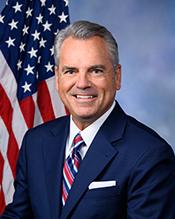
Co-Sponsor
-
TrackRick W. Allen

Co-Sponsor
-
TrackMark E. Amodei

Co-Sponsor
-
TrackJodey C. Arrington

Co-Sponsor
-
TrackBrian Babin

Co-Sponsor
-
TrackDon Bacon

Co-Sponsor
-
TrackJames R. Baird
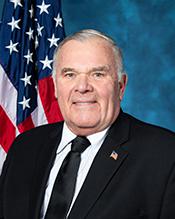
Co-Sponsor
-
TrackTroy Balderson

Co-Sponsor
-
TrackAndy Barr
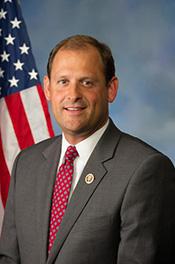
Co-Sponsor
-
TrackTom Barrett

Co-Sponsor
-
TrackMichael Baumgartner

Co-Sponsor
-
TrackAaron Bean

Co-Sponsor
-
TrackNicholas Begich

Co-Sponsor
-
TrackJack Bergman

Co-Sponsor
-
TrackStephanie I. Bice

Co-Sponsor
-
TrackSheri Biggs

Co-Sponsor
-
TrackAndy Biggs

Co-Sponsor
-
TrackGus M. Bilirakis

Co-Sponsor
-
TrackSanford D. Bishop, Jr.

Co-Sponsor
-
TrackLauren Boebert

Co-Sponsor
-
TrackMike Bost

Co-Sponsor
-
TrackRobert Bresnahan

Co-Sponsor
-
TrackVern Buchanan
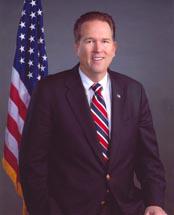
Co-Sponsor
-
TrackTim Burchett

Co-Sponsor
-
TrackEric Burlison

Co-Sponsor
-
TrackKen Calvert
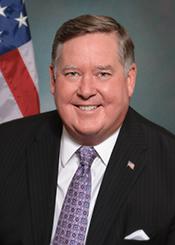
Co-Sponsor
-
TrackKat Cammack

Co-Sponsor
-
TrackMike Carey

Co-Sponsor
-
TrackJohn R. Carter
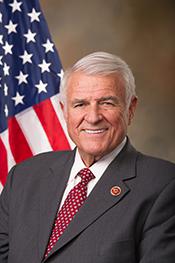
Co-Sponsor
-
TrackEarl L. "Buddy" Carter

Co-Sponsor
-
TrackJuan Ciscomani
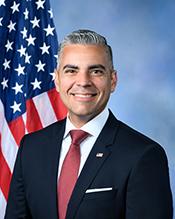
Co-Sponsor
-
TrackBen Cline

Co-Sponsor
-
TrackMichael Cloud

Co-Sponsor
-
TrackAndrew S. Clyde

Co-Sponsor
-
TrackMike Collins

Co-Sponsor
-
TrackJames Comer
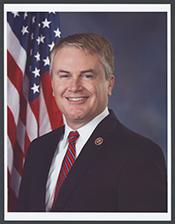
Co-Sponsor
-
TrackElijah Crane

Co-Sponsor
-
TrackJeff Crank

Co-Sponsor
-
TrackEric A. "Rick" Crawford

Co-Sponsor
-
TrackDan Crenshaw

Co-Sponsor
-
TrackWarren Davidson
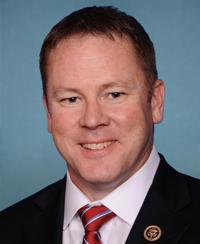
Co-Sponsor
-
TrackDonald G. Davis

Co-Sponsor
-
TrackMonica De La Cruz

Co-Sponsor
-
TrackScott DesJarlais
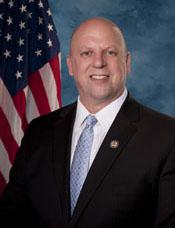
Co-Sponsor
-
TrackMario Diaz-Balart

Co-Sponsor
-
TrackByron Donalds

Co-Sponsor
-
TrackTroy Downing

Co-Sponsor
-
TrackNeal P. Dunn

Co-Sponsor
-
TrackChuck Edwards

Co-Sponsor
-
TrackJake Ellzey
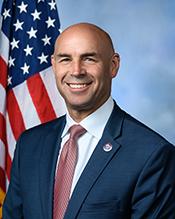
Co-Sponsor
-
TrackTom Emmer

Co-Sponsor
-
TrackGabe Evans

Co-Sponsor
-
TrackMike Ezell

Co-Sponsor
-
TrackPat Fallon

Co-Sponsor
-
TrackJulie Fedorchak

Co-Sponsor
-
TrackBrad Finstad

Co-Sponsor
-
TrackMichelle Fischbach

Co-Sponsor
-
TrackScott Fitzgerald
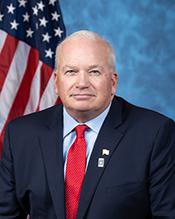
Co-Sponsor
-
TrackCharles J. "Chuck" Fleischmann
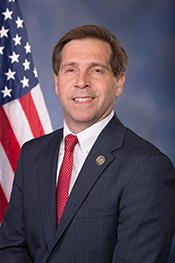
Co-Sponsor
-
TrackMike Flood

Co-Sponsor
-
TrackVince Fong

Co-Sponsor
-
TrackVirginia Foxx

Co-Sponsor
-
TrackScott Franklin

Co-Sponsor
-
TrackRussell Fry

Co-Sponsor
-
TrackRuss Fulcher
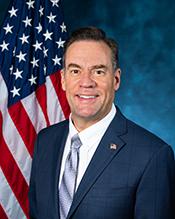
Co-Sponsor
-
TrackAndrew R. Garbarino

Co-Sponsor
-
TrackBrandon Gill

Co-Sponsor
-
TrackDaniel S. Goldman

Co-Sponsor
-
TrackCraig Goldman

Co-Sponsor
-
TrackTony Gonzales

Co-Sponsor
-
TrackLance Gooden
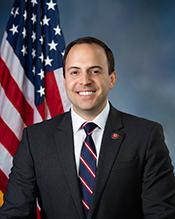
Co-Sponsor
-
TrackPaul A. Gosar

Co-Sponsor
-
TrackSam Graves

Co-Sponsor
-
TrackMark E. Green

Co-Sponsor
-
TrackMarjorie Taylor Greene

Co-Sponsor
-
TrackH. Morgan Griffith

Co-Sponsor
-
TrackMichael Guest

Co-Sponsor
-
TrackBrett Guthrie

Co-Sponsor
-
TrackMike Haridopolos

Co-Sponsor
-
TrackMark Harris

Co-Sponsor
-
TrackAndy Harris

Co-Sponsor
-
TrackDiana Harshbarger

Co-Sponsor
-
TrackKevin Hern

Co-Sponsor
-
TrackClay Higgins
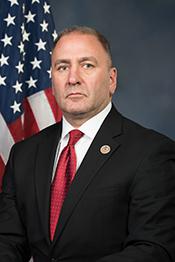
Co-Sponsor
-
TrackJ. French Hill

Co-Sponsor
-
TrackAshley Hinson

Co-Sponsor
-
TrackErin Houchin

Co-Sponsor
-
TrackRichard Hudson

Co-Sponsor
-
TrackJeff Hurd

Co-Sponsor
-
TrackDarrell Issa

Co-Sponsor
-
TrackRonny Jackson

Co-Sponsor
-
TrackJim Jordan

Co-Sponsor
-
TrackDavid P. Joyce

Co-Sponsor
-
TrackJohn Joyce

Co-Sponsor
-
TrackTrent Kelly
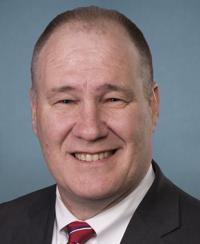
Co-Sponsor
-
TrackMike Kelly
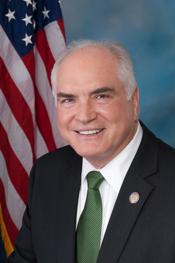
Co-Sponsor
-
TrackKevin Kiley

Co-Sponsor
-
TrackBrad Knott

Co-Sponsor
-
TrackDavid Kustoff

Co-Sponsor
-
TrackDarin LaHood

Co-Sponsor
-
TrackNicholas A. Langworthy
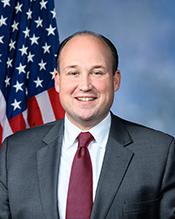
Co-Sponsor
-
TrackRobert E. Latta

Co-Sponsor
-
TrackMichael Lawler

Co-Sponsor
-
TrackJulia Letlow

Co-Sponsor
-
TrackMorgan Luttrell

Co-Sponsor
-
TrackNancy Mace

Co-Sponsor
-
TrackNicole Malliotakis

Co-Sponsor
-
TrackCeleste Maloy

Co-Sponsor
-
TrackTracey Mann

Co-Sponsor
-
TrackThomas Massie

Co-Sponsor
-
TrackBrian J. Mast

Co-Sponsor
-
TrackMichael T. McCaul

Co-Sponsor
-
TrackTom McClintock

Co-Sponsor
-
TrackRichard McCormick

Co-Sponsor
-
TrackAddison McDowell

Co-Sponsor
-
TrackJohn McGuire

Co-Sponsor
-
TrackMark Messmer

Co-Sponsor
-
TrackDaniel Meuser

Co-Sponsor
-
TrackMary E. Miller

Co-Sponsor
-
TrackCarol D. Miller

Co-Sponsor
-
TrackMax L. Miller

Co-Sponsor
-
TrackMariannette Miller-Meeks

Co-Sponsor
-
TrackCory Mills

Co-Sponsor
-
TrackJohn R. Moolenaar

Co-Sponsor
-
TrackTim Moore

Co-Sponsor
-
TrackBarry Moore

Co-Sponsor
-
TrackBlake D. Moore

Co-Sponsor
-
TrackRiley Moore

Co-Sponsor
-
TrackNathaniel Moran

Co-Sponsor
-
TrackGregory F. Murphy

Co-Sponsor
-
TrackTroy E. Nehls
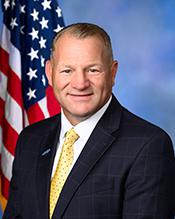
Co-Sponsor
-
TrackDan Newhouse

Co-Sponsor
-
TrackRalph Norman

Co-Sponsor
-
TrackZachary Nunn

Co-Sponsor
-
TrackAndrew Ogles

Co-Sponsor
-
TrackRobert Onder

Co-Sponsor
-
TrackGary J. Palmer

Co-Sponsor
-
TrackScott Perry

Co-Sponsor
-
TrackAugust Pfluger
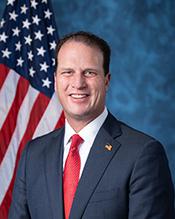
Co-Sponsor
-
TrackGuy Reschenthaler

Co-Sponsor
-
TrackHarold Rogers
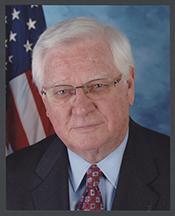
Co-Sponsor
-
TrackMike Rogers

Co-Sponsor
-
TrackJohn W. Rose

Co-Sponsor
-
TrackDavid Rouzer
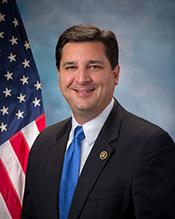
Co-Sponsor
-
TrackChip Roy

Co-Sponsor
-
TrackMichael A. Rulli

Co-Sponsor
-
TrackJohn H. Rutherford

Co-Sponsor
-
TrackDerek Schmidt

Co-Sponsor
-
TrackAustin Scott
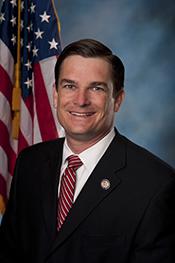
Co-Sponsor
-
TrackKeith Self
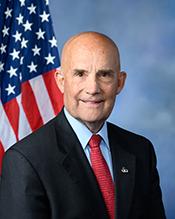
Co-Sponsor
-
TrackPete Sessions

Co-Sponsor
-
TrackJefferson Shreve

Co-Sponsor
-
TrackMichael K. Simpson

Co-Sponsor
-
TrackJason Smith

Co-Sponsor
-
TrackAdrian Smith

Co-Sponsor
-
TrackLloyd Smucker

Co-Sponsor
-
TrackPete Stauber

Co-Sponsor
-
TrackElise M. Stefanik

Co-Sponsor
-
TrackW. Gregory Steube

Co-Sponsor
-
TrackDale W. Strong

Co-Sponsor
-
TrackMarlin A. Stutzman

Co-Sponsor
-
TrackDavid Taylor

Co-Sponsor
-
TrackClaudia Tenney

Co-Sponsor
-
TrackGlenn Thompson

Co-Sponsor
-
TrackThomas P. Tiffany
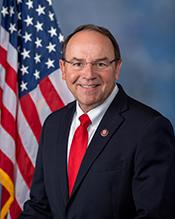
Co-Sponsor
-
TrackMichael R. Turner
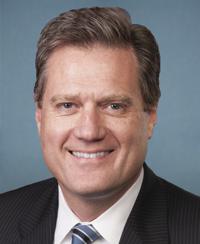
Co-Sponsor
-
TrackDavid G. Valadao
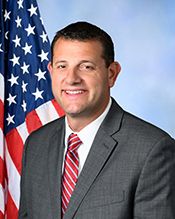
Co-Sponsor
-
TrackJefferson Van Drew

Co-Sponsor
-
TrackBeth Van Duyne

Co-Sponsor
-
TrackDerrick Van Orden

Co-Sponsor
-
TrackAnn Wagner

Co-Sponsor
-
TrackTim Walberg

Co-Sponsor
-
TrackRandy K. Weber, Sr.
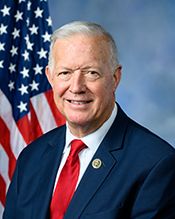
Co-Sponsor
-
TrackDaniel Webster

Co-Sponsor
-
TrackBruce Westerman

Co-Sponsor
-
TrackTony Wied

Co-Sponsor
-
TrackRoger Williams
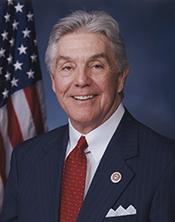
Co-Sponsor
-
TrackJoe Wilson

Co-Sponsor
-
TrackSteve Womack

Co-Sponsor
-
TrackRudy Yakym III

Co-Sponsor
-
TrackRyan K. Zinke

Co-Sponsor
Actions
2 actions
| Date | Action |
|---|---|
| Feb. 13, 2025 | Introduced in House |
| Feb. 13, 2025 | Referred to the House Committee on Ways and Means. |
Corporate Lobbying
0 companies lobbying
None found.
* Note that there can be significant delays in lobbying disclosures, and our data may be incomplete.






















